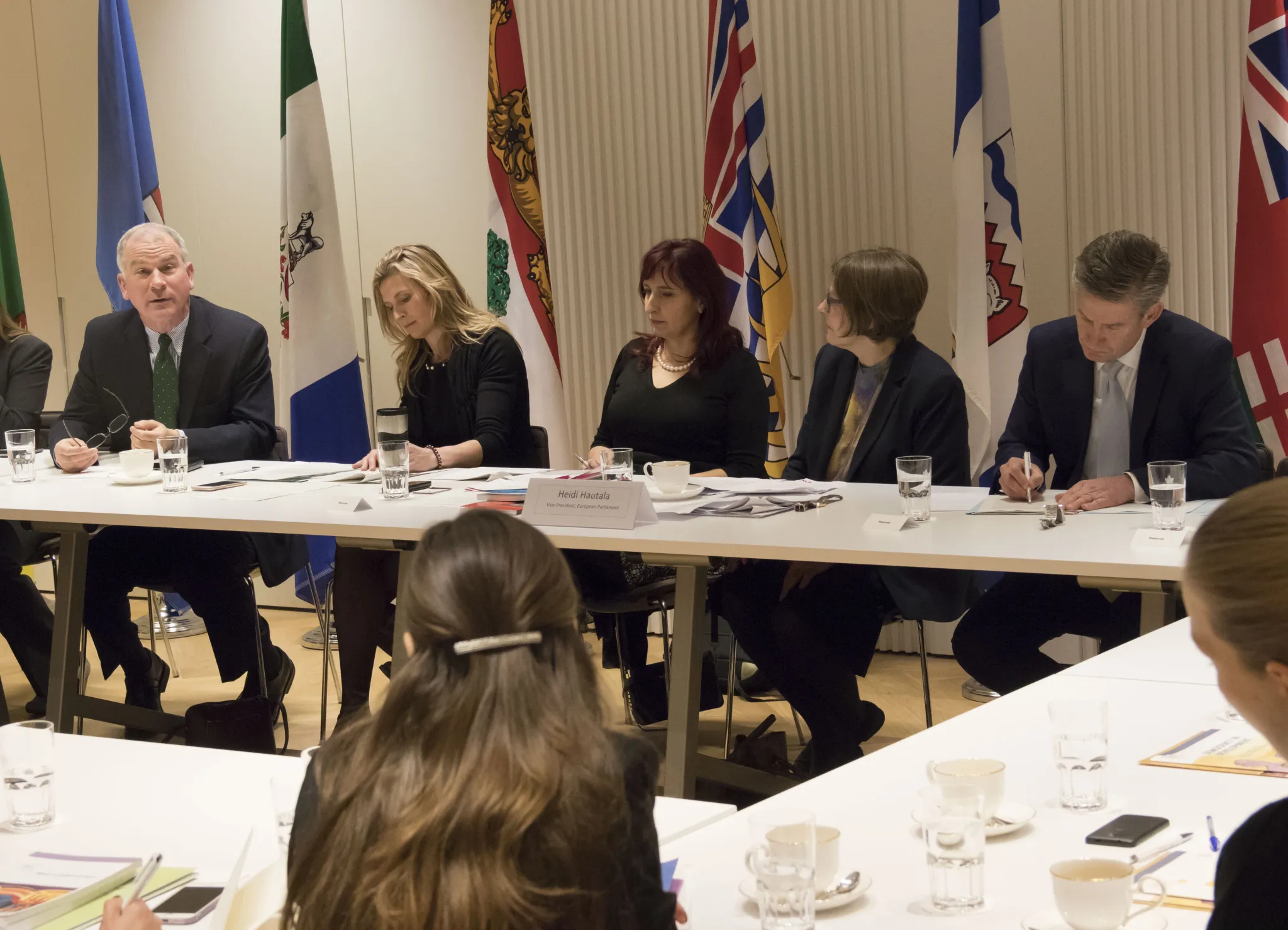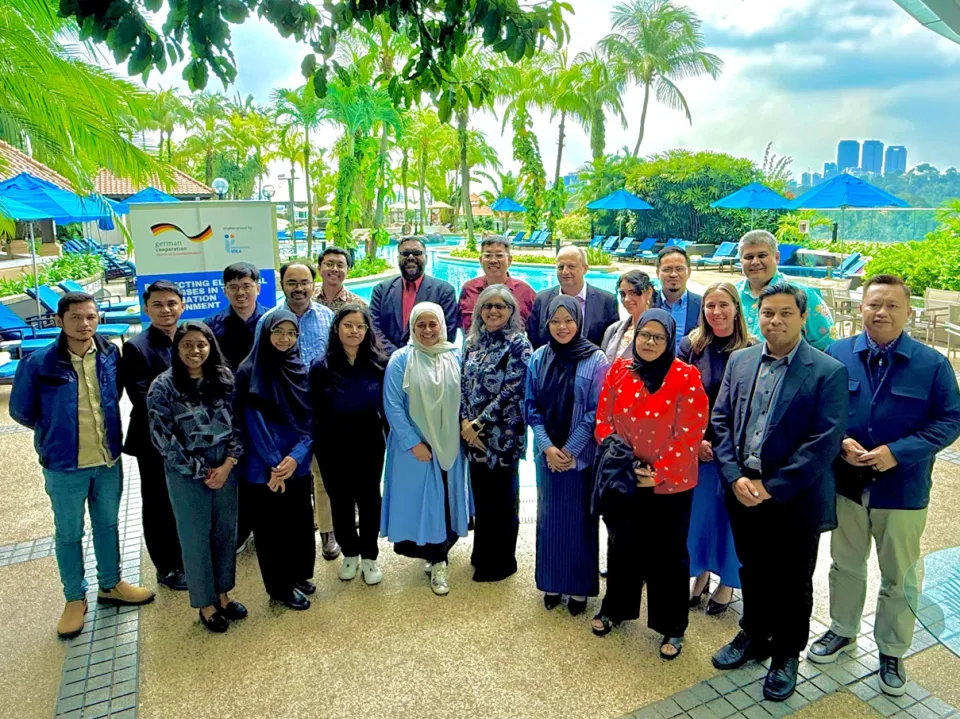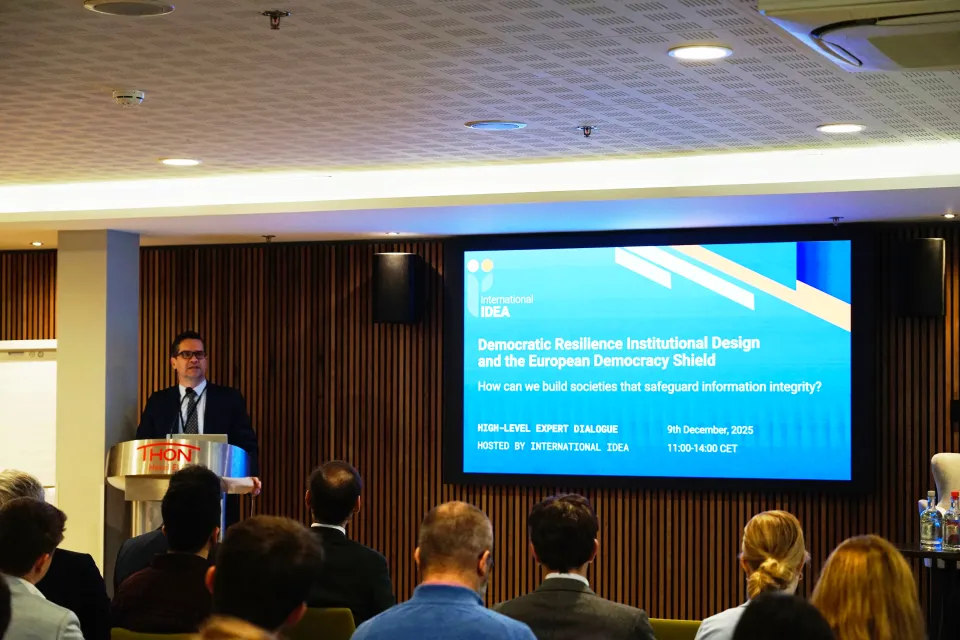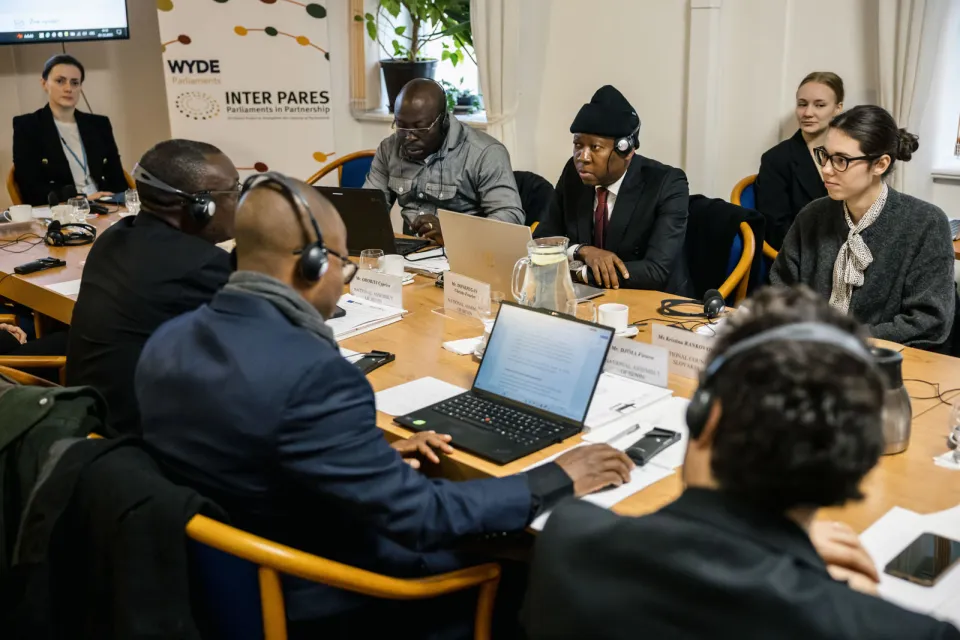Supporting women leaders for inclusive democracy and sustainable development: Overcoming challenges and measuring progress

On 27 March 2018, the Office of International IDEA to the European Union organized a Roundtable on, “Supporting women leaders for inclusive democracy and sustainable development: Overcoming challenges and measuring progress”, with the support of the Canadian Mission to the European Union. Gender equality in politics and business, women guiding policies and strategies at the EU and national level, and the role and sustainable participation of women in power were among the discussion topics of the Roundtable. The Roundtable forms part of the programmatic activity on, “Equality as a vector for accountable governance”, of the Office of International IDEA to the EU.
Andrew Bradley, Director and Head of the Office of International IDEA to the European Union introduced some of International IDEA’s work on the promotion of gender equality and women’s empowerment. He quoted Nelson Mandela by stating that “gender equality is more than a goal in itself. It is a precondition for meeting the challenge of reducing poverty, promoting sustainable development and building good governance”. Ambassador Daniel Costello, Ambassador of Canada to the European Union, provided some inspiring insights of the Canadian policy priority on gender equality and women empowerment at the national, international and multilateral level. He stated that reporting structures can help to identify ways to adjust policies in a gender-friendly way, and policymakers should grasp the opportunities the digital world provides to support these objectives. Costello emphasized that gender equality is not only about numbers, but about sustainable empowerment of women. Keynote Speaker, Heidi Hautala, Vice-President of the European Parliament, said that the European Parliament should enforce transparent internal nomination procedures, and train staff members to counter gender inequality at work. Language aspects, culture and tradition often impede progress, but ideas should be gathered to tackle these challenges. According to Hautala, a solution is to introduce gender equality responsiveness to the highest levels of decision-making and business leadership.
Claudia de Castro Caldeirinha, Executive Director at Redscope Consulting and co-author of the book “Women leading the way in Brussels”, and Marilyn Neven, Programme Manager at the Office of International IDEA to the EU, moderated the debate. After providing an overview of the existing data related to women empowerment, de Castro Caldeirinha took stock of supporting measures and of the state of the debate at the EU level. She stated that action is required, as the natural flow of progress is slow compared to the constant and fast changes in the world. A change of mindset and leadership towards women empowerment is crucial, including more openness and recognition of the added value of women skills in leadership.
The Roundtable was attended by 30 participants with institutional, political, academic and practitioner backgrounds. Participants acknowledged that important measures and initiatives have been taken, but greater attention should be given to introducing more gender awareness in education systems. This would contribute to changing the current mind-set to accepting more women leadership, and supporting the advancement of leadership skills. The attention was also drawn to failing parental leave systems in most countries, as they disadvantage the professional careers of women. When it comes to politics, political parties should be more pro-active to including more women in top-power structures.
Platforms and spaces for practitioners and politicians to exchange and build on mutual work in support of sustainable gender empowerment must be promoted. The creation of open online spaces with data on gender, can allow authorities and stakeholders to optimize research efforts serving as a basis for effective policy formulation. The integration of local elements or parameters for indicators could be useful to measuring systems and research in this field.
Increased political priority to gender empowerment at the national and international levels provides a momentum to advance women empowerment on a wider scale. The United Nations Beijing Declaration[1] of 1995 captures related priorities and should be fully implemented. At the EU level, the Gender Action Plan 2016-2020 sets objectives and targets, and it provides a framework for gender sensitive policy evaluation. Empowerment at the local level can boost efficiency of any measures at other levels. The creation of synergies across all levels are therefore key. Participants emphasized the importance of taking intelligent approaches towards cultural arguments that devaluate women empowerment. A connotation of negative alliances of cultural, religious and traditional values often impede any progress on the issue. The positives attributes of diversity should be highlighted and included in policy formulation and other initiative. As regards to media, some participants denounced the practice of differential male/female leadership reporting. The use of women empowering language by all stakeholders is also of importance to ensure equal and sustainable access to power.
The main takeaways of the Roundtable discussion in support of women leadership for inclusive democracy and sustainable development include the following:
- Importance of sufficient political will to support gender equality and women’s empowerment among all role-players and stakeholders;
- Need for the promotion of gender equality at the local level to support effectiveness of initiatives at other levels;
- Importance of the awareness that women empowerment is only the first step towards a sustainable equal exercise of power;
- Need to fire up a new generation for gender equality, with a focus on more awareness of boys and young men;
- Value of providing supporting networks for women in position of power to build capacity for the sustainable equal exercise of power;
- Importance of cooperation between organizations working in this field, to share and gain a critical mass and good practices, to effect change, and to break down institutional silos hampering gender equality;
- Need for a good understanding of the local country context and dynamics to develop monitoring systems for accountable governance on political gender equality and women’s access to power;
- Active promotion of initiatives and projects in other parts of the world, and the inclusions of related lessons and good practices. This would contribute to reducing the "Eurocentric character of, and promoting greater diversity" in the women’s empowerment debate; and
- Necessity of developing different and context specific strategies for empowerment of women from ethnic minorities to promote inclusion.
In conclusion, the Roundtable acknowledged that advancing gender equality and women’s empowerment at the highest levels of EU decision-making and in business would be crucial to end inequality. Supporting networks and structures should be promoted to support the effectiveness of political measures. In the global context, the implementation of these proposals is crucial for the achievement of inclusive democracy and sustainable development.




